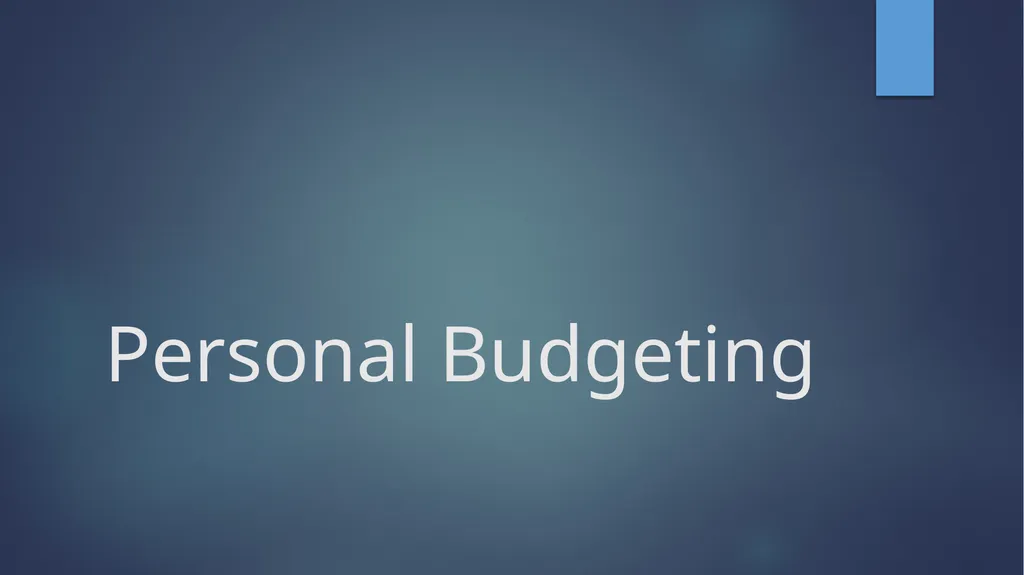
Author : tawny-fly | Published Date : 2025-06-23
Description: Personal Budgeting Have you ever said to yourself Where does all of my money go? Budgeting will allow you to know where your hard earned money goes. When will I be able to pay off my loans? Budgeting is a first step in making futureDownload Presentation The PPT/PDF document "" is the property of its rightful owner. Permission is granted to download and print the materials on this website for personal, non-commercial use only, and to display it on your personal computer provided you do not modify the materials and that you retain all copyright notices contained in the materials. By downloading content from our website, you accept the terms of this agreement.
Here is the link to download the presentation.
"Personal Budgeting Have you ever said to yourself…"The content belongs to its owner. You may download and print it for personal use, without modification, and keep all copyright notices. By downloading, you agree to these terms.













